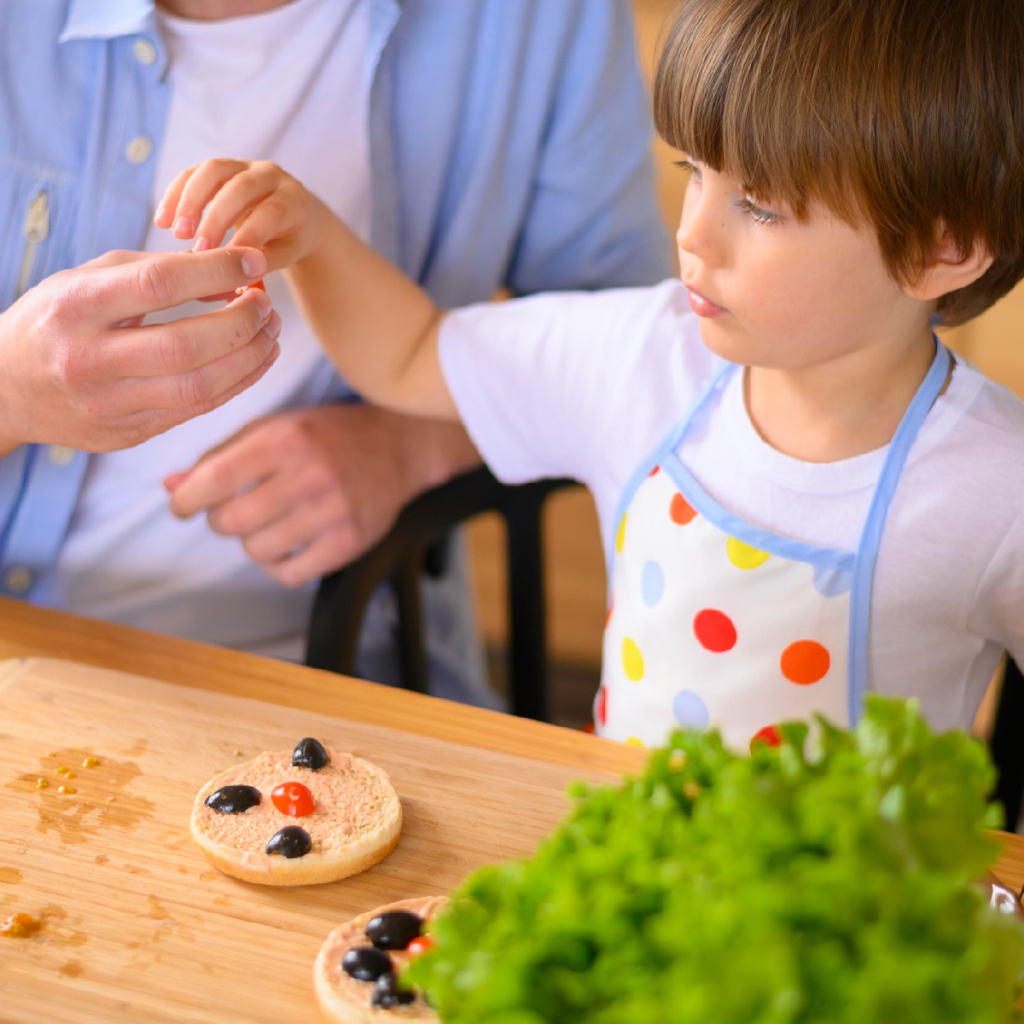Discover effective strategies and tips for teaching manners and etiquette to 4-5 year old children.
Teaching Manners and Etiquette to 4-5 Year Old Children
Teaching manners and etiquette to 4-5 year old children may seem like a daunting task, but fear not! It’s never too early to start instilling these important social skills in your little ones. So grab your manners cape and join us on this adventure of politeness and consideration!

Understanding the Importance of Manners and Etiquette
Before we dive into the nitty-gritty of teaching manners and etiquette to our pint-sized pals, let’s take a moment to appreciate why these skills are so important. Manners and etiquette serve as the foundation of social interactions, helping children navigate the complexities of human relationships with grace and respect.
When we think about manners and etiquette, we often envision a child saying “please” and “thank you” or holding the door open for someone. While these actions are certainly part of it, there is so much more to it than meets the eye. Manners and etiquette for children encompass a wide range of social customs and behaviors that promote kindness, consideration, and respect toward others. It’s all about being mindful of others’ feelings and needs.
Defining Manners and Etiquette for Children
So, what exactly do we mean when we talk about manners and etiquette for children? Put simply, it refers to the social customs and behaviors that promote kindness, consideration, and respect toward others. It’s all about being mindful of others’ feelings and needs.
Teaching children manners and etiquette goes beyond just teaching them to say “please” and “thank you.” It involves teaching them how to greet others politely, how to share and take turns, and how to listen attentively when someone is speaking. It also includes teaching them about personal space, table manners, and how to handle conflicts in a respectful manner.
By teaching children these important social skills, we are equipping them with the tools they need to navigate the world around them. These skills will not only benefit them in their interactions with others but also in their personal growth and development.
The Role of Manners in Social Development
Manners play a vital role in a child’s social development. By teaching our little ones to say “please” and “thank you,” we’re not only instilling good manners, but also helping them cultivate empathy and gratitude. These skills will serve as their superpowers when it comes to building strong and meaningful friendships.
When children are taught to be polite and considerate, they learn to understand and respect the feelings and needs of others. This empathy allows them to form deeper connections with their peers and develop a sense of community. It also helps them become more aware of the impact their words and actions can have on others, fostering a sense of responsibility and accountability.
Furthermore, manners and etiquette provide children with a sense of structure and predictability in social situations. Knowing how to behave appropriately in different settings gives them confidence and helps them feel more comfortable in unfamiliar situations. This, in turn, opens up opportunities for them to engage in new experiences and form new relationships.
Overall, teaching children manners and etiquette is not just about teaching them a set of rules to follow. It is about instilling in them a set of values and principles that will guide them throughout their lives. By teaching them to be kind, considerate, and respectful, we are helping them become compassionate individuals who can positively contribute to society.
Key Manners to Teach 4-5 Year Olds
Now, let’s talk about some of the essential manners and etiquette skills to introduce to your 4-5 year old superheroes. Remember, every tiny achievement deserves a round of applause and a high-five!
Basic Politeness: Saying Please and Thank You
One of the first lessons in the realm of manners is teaching children the magic words: “please” and “thank you.” Encourage them to say “please” when making a request and “thank you” when expressing gratitude. They may not always remember to use them, but with gentle reminders and positive reinforcement, they’ll soon adopt this superpower!
When your child says “please,” it shows that they understand the importance of being polite and considerate towards others. It teaches them that making requests in a kind and respectful manner is more likely to yield positive results. Saying “thank you” not only shows appreciation but also helps children develop a sense of gratitude for the things they receive or the actions others take on their behalf.
As your child becomes more comfortable using these magic words, you can encourage them to expand their vocabulary of politeness. Teach them phrases like “excuse me,” “you’re welcome,” and “I’m sorry” to further enhance their communication skills and empathy towards others.
Sharing and Taking Turns
Superheroes are known for their ability to share and take turns, and your little one can be no different! Teach them the art of sharing toys and playing nicely with others. Encourage taking turns during games and activities, fostering a sense of fairness and cooperation.
Sharing is an important social skill that helps children develop empathy and consideration for others. By sharing their toys, your child learns the joy of giving and the value of cooperation. It also teaches them that they don’t always have to be the center of attention and that sharing can lead to stronger friendships and positive social interactions.
Taking turns is another crucial aspect of social development. It teaches patience and respect for others’ time and opinions. By waiting for their turn, your child learns the importance of listening and understanding that everyone deserves a chance to participate. This skill will serve them well not only during playtime but also in various group settings throughout their lives.
Respecting Personal Space
Part of being a polite superhero is respecting personal space. Help your child understand the concept of boundaries by teaching them not to invade others’ personal bubbles. You can make a fun game out of it, pretending to be superheroes who respect the invisible force field around each person.
Respecting personal space is an essential skill that promotes healthy relationships and ensures the comfort and well-being of all individuals. By teaching your child to be aware of personal boundaries, you are instilling in them the importance of consent, respect, and empathy.
Encourage your child to ask for permission before hugging, touching, or entering someone else’s personal space. Teach them to recognize when someone feels uncomfortable and to adjust their behavior accordingly. By practicing this skill, your child will develop a heightened sense of empathy and an understanding of the importance of personal boundaries.
Remember, teaching manners and etiquette is an ongoing process. It requires patience, consistency, and leading by example. Celebrate each milestone your child achieves in their manners journey, and watch them grow into superheroes of kindness and consideration!
Teaching Etiquette at Home
Now that our pint-sized superheroes have mastered some key manners, it’s time to incorporate etiquette into their daily routines. Let’s unleash their powers of politeness at home!
Incorporating Etiquette into Daily Routines
Make manners a part of your child’s daily rituals. Encourage them to greet family members with a cheerful “good morning” and bid them farewell with a sweet “goodbye.” Remind them to use their manners during meal times, helping them set the table and use utensils properly.
But teaching etiquette goes beyond just greetings and table manners. It’s about instilling a sense of respect and consideration in our little ones. Encourage your child to hold the door open for others, say “please” and “thank you” when appropriate, and offer help to those in need. These small acts of kindness will not only make your child a polite individual but also contribute to a more harmonious and compassionate society.
Another way to incorporate etiquette into daily routines is by teaching your child the importance of personal hygiene. Encourage them to brush their teeth twice a day, wash their hands before meals, and cover their mouth when they cough or sneeze. By practicing good hygiene, your child will not only maintain their own health but also show respect for the well-being of others.
Reinforcing Good Manners at Meal Times
Meal times can be the perfect opportunity to reinforce good manners. Encourage your child to sit nicely at the table, use their napkin, and chew with their mouth closed. Emphasize the joy of dining together as a family, where everyone takes turns sharing their day and listening to others.
But mealtime etiquette is not just about table manners. It’s also about fostering a positive and inclusive atmosphere. Teach your child to engage in polite conversation, asking others about their day and showing genuine interest in their stories. Encourage them to listen attentively and respond with empathy and kindness. By creating a nurturing environment during meal times, you are not only reinforcing good manners but also building strong family bonds.
Furthermore, involve your child in the preparation of meals. Teach them how to set the table properly, arrange the dishes, and serve others. By involving them in these tasks, you are not only teaching them practical skills but also instilling a sense of responsibility and teamwork.
Teaching Etiquette in Public Places
We superheroes have to know how to save the day in any situation, even in public places. Let’s equip our little ones with the right etiquette tools to navigate the world with ease!

Behaving in Stores and Restaurants
Going to stores and restaurants can be exciting adventures for young children. Teach them how to be respectful and considerate in these public spaces. Explain the importance of using inside voices, waiting patiently in line, and saying “excuse me” when trying to get past others.
Interacting with Others at the Playground
The playground is a bustling hub of activity where superheroes gather to have fun. Teach your child how to interact politely with other children. Encourage them to take turns on the swings, share the sandbox toys, and use kind words when making new friends.
Dealing with Manners and Etiquette Challenges
Even superheroes face challenges, and teaching manners and etiquette is no exception. Let’s explore some common roadblocks and discover how to tackle them head-on!
Addressing Backtalk and Rudeness
Backtalk and rudeness are kryptonite to good manners, but fear not! When your child veers off the polite path, address the behavior calmly and firmly. Explain why their words or tone were inappropriate and guide them toward respectful alternatives.
Encouraging Patience and Waiting Your Turn
Patience may not come naturally to superheroes-in-training, but it’s an important quality to cultivate. Teach your child the value of waiting their turn, whether it’s in conversation or while playing a game. Celebrate their successes in exercising patience, no matter how small!
By incorporating these tips and tricks into your daily routines, you’ll be well on your way to raising a courteous and considerate superhero. Remember, teaching manners and etiquette should always be a fun and positive experience for both you and your child. So go forth, mighty mentors, and let the adventure of good manners begin!



